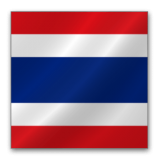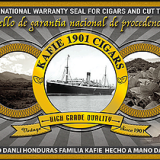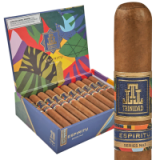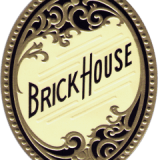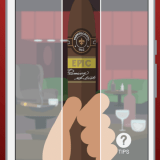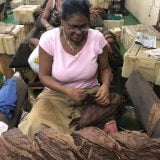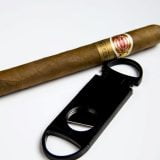Cigars are often associated with leisurely relaxation and celebration, whether it’s in the company of a close friend or during a special occasion. And while Cuban cigars remain one of the most popular and renowned cigar options around, there are also many non-Cuban varieties available that provide an alternative for those seeking something different.
Contents:
- Exploring the Flavors of Non-Cuban Cigars
- Discovering the World Beyond Cuban Cigars
- Navigating Different Types of Wrappers
- The Complexity of Non-Cuban Blends
- Unraveling the Mysteries of Aging
- Understanding Cigar Sizes and Shapes
- Where to Find Quality Non-Cuban Cigars
- Cigar Accessories: Enhancing Your Experience
When it comes to non-Cuban cigars, you’ll find a huge variety of shapes, sizes, tastes and textures. From mild Dominican puros to bold Nicaraguan smokes to Honduran delicacies and beyond – each cigar offers its own unique smoking experience. Whether you’re looking for something light and easygoing or rich and full-bodied, these non-Cuban cigars have got you covered.
A key difference between Cuban cigars is their origin: as the name suggests, they come from Cuba; whereas all other cigars originate from outside Cuba – usually Central America or the Caribbean islands such as Jamaica or Haiti. The tobacco used in making these cigars varies greatly depending on where they come from; each country has its own unique climate which affects how their leaves grow – leading to subtle differences in flavor among them all.
In addition to their origins being different than Cuban brands’, another distinguishing factor between Cuban and non-Cuban brands is how they’re made: Non-Cuban Cigars are generally machine rolled using preformed molds while Cubans are hand rolled without any molds at all – giving them a much smoother texture than their counterparts across the sea. This makes navigating through the varieties of non-cuban cigars an exciting journey for anyone interested in exploring new flavors.
The sheer number of options when it comes to selecting your next smoke can be overwhelming – but don’t worry – with so many choices available there’s bound to be something out there that will fit your individual taste profile perfectly. Whether you’re looking for something milder like Connecticut Shade Wrapper leafs or wanting something more powerful like San Andreas Maduro wrappers –you’ll never get bored with this wide selection of amazing tasting smokes!
Exploring the Flavors of Non-Cuban Cigars
Exploring the flavors of non-cuban cigars is an essential part of navigating their varieties. Each type of cigar will have its own unique blend, which in turn creates a distinct taste and aroma. While there are some similarities between all cigars, non-Cuban ones can provide an entirely different experience than Cuban cigars.
The first step to finding your favorite flavor is determining what types of tobacco you prefer; do you want something light or something more full bodied? Do you want it to be sweet or spicy? Once you decide on these basic characteristics, then you can begin exploring the various blends offered by different brands and countries. For example, Nicaraguan tobaccos tend to produce bolder smokes with intense flavor profiles while Honduran tobaccos often produce sweeter, milder smokes that are perfect for those just starting out.
Don’t forget about wrappers. Wrappers come from various parts of the world and each one has its own distinct flavor profile as well as appearance. Connecticut wrappers tend to offer a slightly sweet yet smooth smoke while Brazilian wrappers typically create fuller flavored cigars with dark tones. Regardless of your preferences when it comes to strength and sweetness level – there’s sure to be a wrapper out there that fits your tastes perfectly!
Discovering the World Beyond Cuban Cigars
In the realm of premium cigars, it is common knowledge that Cuban cigars are considered to be some of the finest in the world. While they certainly have a reputation for being top-notch, there is a whole world of non-Cuban cigars available to explore as well. These stogies offer an array of flavors and aromas that may surprise even the most seasoned smoker.
The key to discovering the wonders beyond Cuban cigars lies in exploring different regions and their unique tobaccos. From Nicaraguan puros boasting spicy and earthy notes to Honduran blends with sweet undertones, each country has something special to offer in terms of taste and aroma. Many brands feature wrappers from various countries; this allows cigar aficionados to experience diverse flavor profiles all within one smoke.
One great way for newbies or even experienced smokers alike to sample some amazing options outside Cuba is through sampler packs. This provides a perfect opportunity for those who are looking to try out different varieties without having make large investments on single sticks. Samplers also enable customers discover which type suits them best before committing money towards boxes or bundles at their local tobacco shop or online store.
Navigating Different Types of Wrappers
When it comes to non-Cuban cigars, one of the most important aspects to consider is the wrapper. Cigar wrappers are usually classified by their color and texture, which can be determined by their origin. The two primary types of wrappers are natural and maduro. Natural wrappers have a light brown hue and tend to be delicate in texture. On the other hand, maduros feature a dark brown color and often possess an oily sheen.
The flavor of the cigar is largely determined by its wrapper type, so it’s important for cigar aficionados to take this into consideration when making a selection. Natural wrappers generally provide more subtle notes on the palate such as hay or grassy flavors, while maduros offer richer nuances like chocolate or coffee tones. Due to their thicker construction, maduros tend to burn slower than natural ones; thus providing longer smoking experiences with smoother draws.
Apart from natural and maduro varieties there are also candela (green), oscuro (black) and claro (light tan) wrappers available on the market today that provide unique flavor profiles all their own. For example, oscuro wraps deliver bolder tastes akin to leather or earthiness while claros often yield milder nuances with hints of cedar wood aromas or even honey sweetness undertones at times. Ultimately then, depending on individual taste preferences there’s certainly no shortage of choices when it comes to finding non-Cuban cigars wrapped in different types of leafs.
The Complexity of Non-Cuban Blends
When it comes to non-Cuban cigars, the complexities of their blends can be quite daunting. Non-Cubans come in a wide range of shapes, sizes and flavours – from mild Connecticut wrappers to spicy Nicaraguan Maduros. With so many options available, it can be difficult for novice smokers to decide which type is right for them.
To make an informed decision, one must understand the nuances between each blend. For instance, Dominican filler tobaccos are known for being rich and earthy while Honduran fillers have more of a sweet and nutty flavour profile. The wrapper also plays a major role in determining the character of a cigar; Ecuadorian wrappers tend to produce mellow aromas while Brazilian wrappers often provide complex and robust smoke.
When selecting non-Cuban cigars, it is important to take into account not only the blend but also personal preferences when making your selection. Experienced smokers may prefer bolder profiles that come with fuller bodied cigars while those new to smoking might want something more mild or medium bodied instead. It’s best practice to sample different types until you find what works best for you as individual tastes vary greatly.
Unraveling the Mysteries of Aging
The intricacies of aging cigars have been a topic of great interest for aficionados around the world. When it comes to non-Cuban cigars, there are a few things that should be taken into account when considering the optimal aging process. First and foremost is climate control. The humidity and temperature in which the cigar is aged will greatly affect its flavor profile as well as its longevity.
For those who are new to cigar aging, a good rule of thumb is to keep them stored in an environment with 70% relative humidity and 70 degrees Fahrenheit. This creates an ideal environment for long-term storage, allowing for slow maturation over time without compromising the integrity of the wrapper or fillers within the cigar. Limiting exposure to direct sunlight is key; too much sun can cause bleaching and make flavors more pronounced than desired.
Proper ventilation plays a crucial role in any successful aging regimen; air circulation helps keep tobacco at consistent moisture levels while also preventing mold growth due to excess humidity buildup inside humidors or other containers used for storage purposes. It’s important to rotate your stock every so often so all cigars get equal amounts of exposure to air circulation – this helps maintain evenness among all your smokes.
Understanding Cigar Sizes and Shapes
When it comes to cigars, the size and shape are just as important as the blend. Cigar enthusiasts often have a preference for one size or shape over another, but for those who are new to the cigar world, understanding how sizes and shapes affect a cigar’s smoking experience can be difficult.
The most common way of measuring a cigar is by its length (in inches) and ring gauge (diameter). The length measures from the head of the cigar to its foot while the ring gauge measures its diameter in 64ths of an inch. While there are many standard sizes available, some brands offer unique lengths and gauges that can give smokers an entirely different experience than they’re used to.
One thing that should be kept in mind when selecting a cigar based on size is draw resistance: long cigars with thin rings tend to be easier to smoke than short ones with thick rings. This isn’t always true though – sometimes blending techniques or wrapper thicknesses can make longer/thinner cigars quite hard-drawing; so it’s best not to assume anything without doing your research beforehand.
Shape also plays an important role in how you enjoy your smoke. Cigars come in various shapes such as robusto, corona, torpedo, lancero, figurado etc. Each offering a distinct experience due their individual construction methods. It’s essential for smokers looking for something more intense than traditional blends – like double ligero or full-bodied smokes – to understand these distinctions because they will ultimately determine how much nicotine they take in per puff.
Where to Find Quality Non-Cuban Cigars
When it comes to finding quality non-Cuban cigars, the variety available can be overwhelming. From traditional favorites such as Cohiba and Macanudo to newcomers like Rocky Patel and La Gloria Cubana, the options are seemingly endless. Luckily for those seeking premium smokes from beyond Cuba’s borders, there are a few reliable resources that make selecting the right cigar easier.
Online retailers such as Famous Smoke Shop offer a wide selection of non-Cuban cigars at competitive prices, making it easy to find exactly what you’re looking for without breaking your budget. These online stores often feature helpful customer reviews so you can get an idea of how others have enjoyed their experience with certain brands or blends before committing to purchasing them yourself.
For those who prefer the classic feel of visiting a brick-and-mortar store in person, tobacconists throughout North America are well stocked with non-Cuban cigars sourced from all over the world. With experts on hand to guide your decision making process and provide personalized advice tailored to individual tastes, these establishments provide invaluable assistance when deciding which cigar is best suited for any given occasion.
Cigar Accessories: Enhancing Your Experience
When exploring the many different types of non-Cuban cigars, it is important to consider what type of accessories you will need. Cigar accessories are designed to improve your overall experience by making your smoke session more comfortable and enjoyable. The most popular accessory is a cigar cutter which can be used to easily slice off the end of the cigar in order for you to start smoking. A good quality cigar cutter will ensure a precise cut and avoid any damage that could ruin your smoking experience.
A humidor is also an essential tool for anyone who enjoys cigars on a regular basis. This device helps keep your cigars fresh by controlling temperature and humidity levels inside the box so that they do not dry out or become moldy over time. While there are plenty of options available on the market, make sure you pick one with solid construction as well as reliable seals in order to maintain optimal conditions for your collection.
Having a lighter handy when smoking a cigar is always helpful since it allows you to light up quickly without needing matches or other tools. Butane lighters offer great reliability and performance due their powerful flame which makes them perfect for lighting up cigars even in windy environments outdoors. Torch lighters are becoming increasingly popular among aficionados because they allow precise control over temperature and provide an efficient way to get rid of impurities from tobacco leaves before smoking them.


